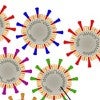
SARS-Arena reveals hidden hooks in virus
SARS-Arena will help to find conserved parts in proteins from SARS-CoV-2 that could be a key for the development of wide-spectrum vaccines.

SARS-Arena reveals hidden hooks in virus
SARS-Arena will help to find conserved parts in proteins from SARS-CoV-2 that could be a key for the development of wide-spectrum vaccines.
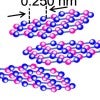
Flashing creates hard-to-get 2D boron nitride
Rice University chemists use their flash Joule heating process to synthesize 2D flakes of boron nitride and boron carbon nitride, highly valued for lending thermal and chemical stability to compounds.
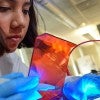
Hidden genes may be tapped for new antibiotics
Rice University bioscientists learn to trigger “silent” gene clusters in bacteria that could be rich sources of new antibiotic candidates.

Emu stands tall at detecting bacteria species
Rice computer scientists develop Emu, which uses long reads of genomes to identify bacteria in a community.
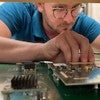
Rice physicists available to discuss Higgs boson 10th anniversary
Rice University physicists are available to discuss the July 4 anniversary of the Higgs boson discovery and the recent restart of the Large Hadron Collider (LHC) for a third round of experiments.

DOE backs Rice physicists’ collaboration
Rice nuclear physicists win a Department of Energy grant to research the fundamental properties of matter in extreme conditions.
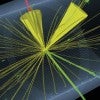
An Owl’s-eye view of the Higgs boson at 10
Anniversary finds Rice physicists pushing forward as Large Hadron Collider reboots
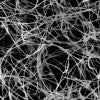
Boron nitride nanotube fibers get real
Rice scientists create the first boron nitride nanotube fibers using the custom wet-spinning process they developed to make carbon nanotube fibers.
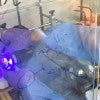
Process to customize molecules does double duty
Chemists develop a method to add two fragments to an alkene molecule in a single process, which could simplify drug and materials design.
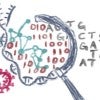
SeqScreen can reveal ‘concerning’ DNA
Rice computer scientists and collaborators develop a program to screen short DNA sequences, whether synthetic or natural, to determine their toxicity.
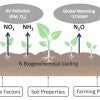
Agriculture emissions pose risks to health and climate
Rice researchers find the economic cost of emissions from agriculture and their risks to populations through air pollution and climate change.
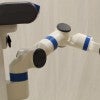
Humans in the loop help robots find their way
Rice computer scientists develop a method that allows humans to help complex robots build efficient solutions to “see” their environments and carry out tasks.

Schooling status during pandemic predicted parents’ resilience
A new study suggests parents accustomed to home schooling felt more resilient during the COVID-19 pandemic than those whose public-school children were suddenly housebound, especially when the latter parents did not meet recommendations for physical activity.

Rice physicist wins DOE early career award
Physicist Guido Pagano wins a prestigious Early Career Research Award from the Department of Energy.
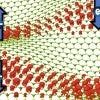
Bumps could smooth quantum investigations
Rice University materials theorists model a contoured surface overlaid with 2D materials and find it possible to control their electronic and magnetic properties. The discovery could simplify research into many-body effects, including quantum systems.